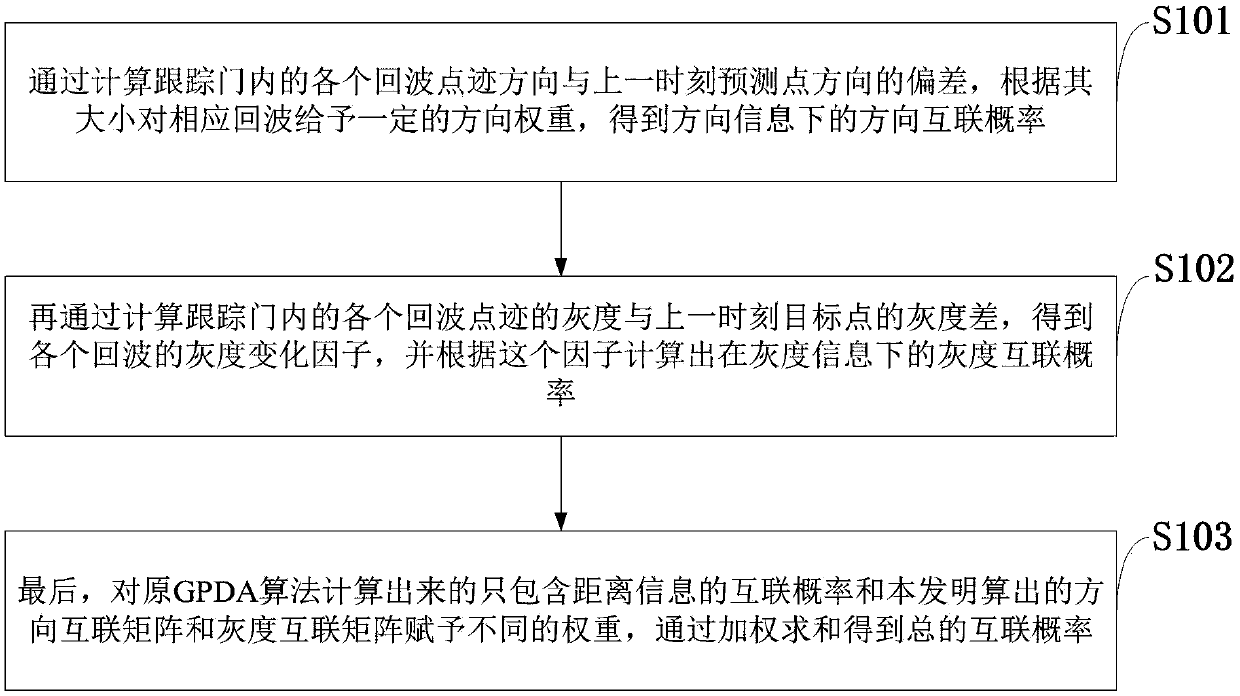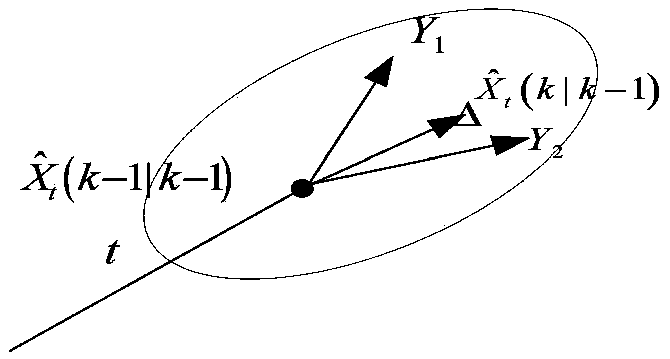Data correlation problem processing method in large-view field photoelectric imaging multi-weak and small target tracking
An optoelectronic imaging, weak and small target technology, applied in the field of image analysis, can solve the problems of noise submerged noise, reduction of correct correlation rate, false targets and more noise, etc., to reduce the probability of false correlation, improve correlation accuracy, and save tracking time. Effect
- Summary
- Abstract
- Description
- Claims
- Application Information
AI Technical Summary
Problems solved by technology
Method used
Image
Examples
Embodiment Construction
[0054] In order to further understand the content, features and effects of the present invention, the following examples are given, and detailed descriptions are given below with reference to the accompanying drawings.
[0055] The present invention compares and analyzes the multi-target tracking performance in the clutter environment through the DAGGPDA algorithm and the original GPDA and JPDA algorithms. It can be concluded that the algorithm inherits the original GPDA algorithm, and the tracking performance is improved at a small calculation cost. great improvement.
[0056] The application principle of the present invention will be described in detail below in conjunction with the accompanying drawings.
[0057] Such as figure 1 As shown, the method for processing the data association problem in the tracking of multiple weak and small targets provided by the embodiment of the present invention includes the following steps:
[0058] S101: By calculating the deviation betw...
PUM
 Login to View More
Login to View More Abstract
Description
Claims
Application Information
 Login to View More
Login to View More - R&D Engineer
- R&D Manager
- IP Professional
- Industry Leading Data Capabilities
- Powerful AI technology
- Patent DNA Extraction
Browse by: Latest US Patents, China's latest patents, Technical Efficacy Thesaurus, Application Domain, Technology Topic, Popular Technical Reports.
© 2024 PatSnap. All rights reserved.Legal|Privacy policy|Modern Slavery Act Transparency Statement|Sitemap|About US| Contact US: help@patsnap.com










